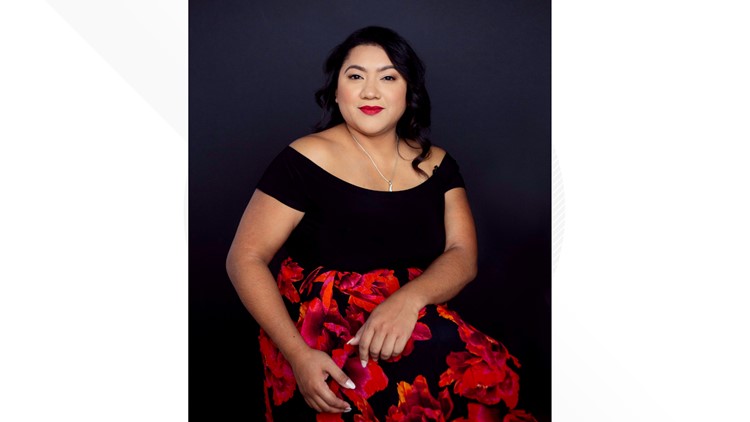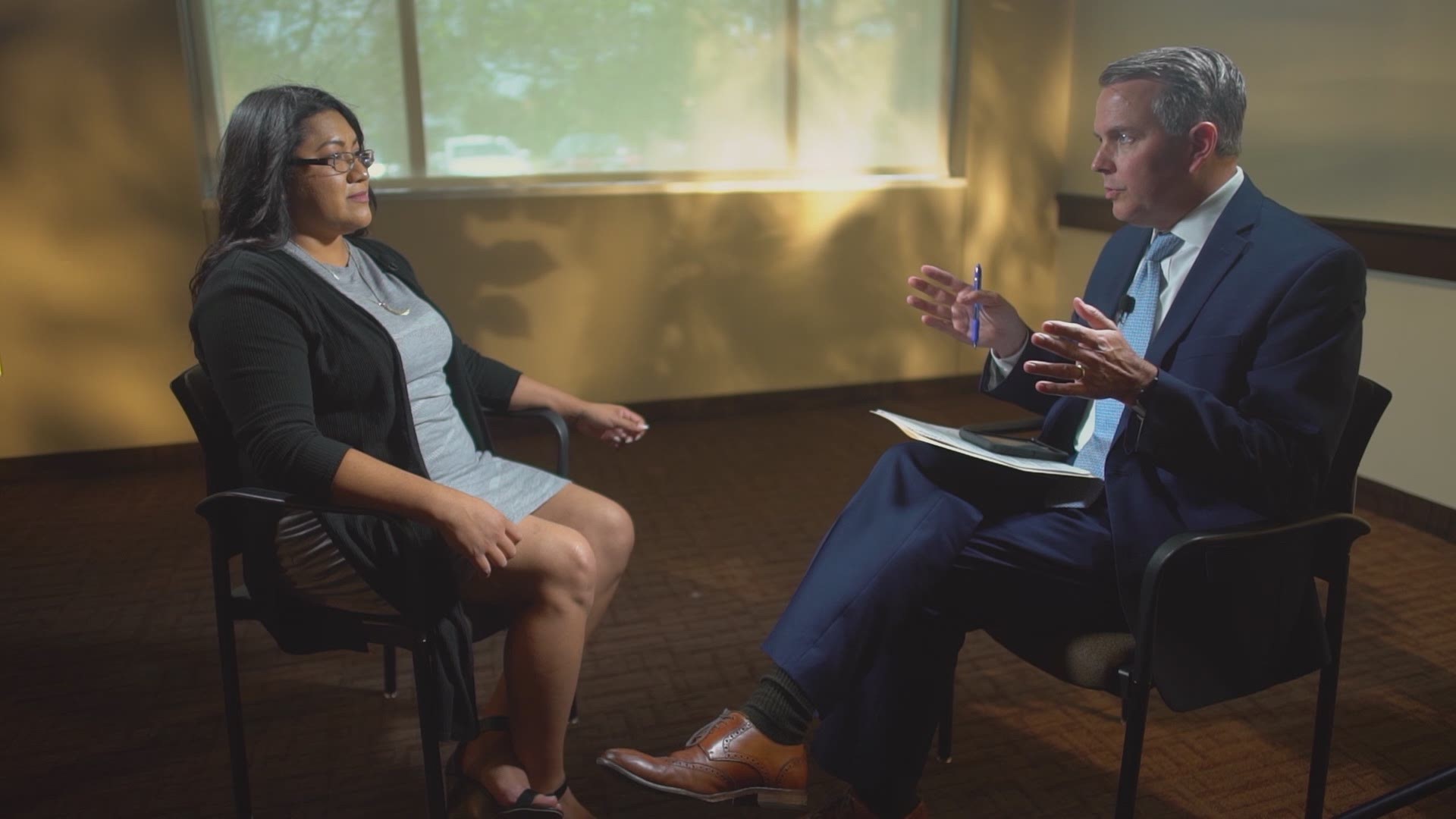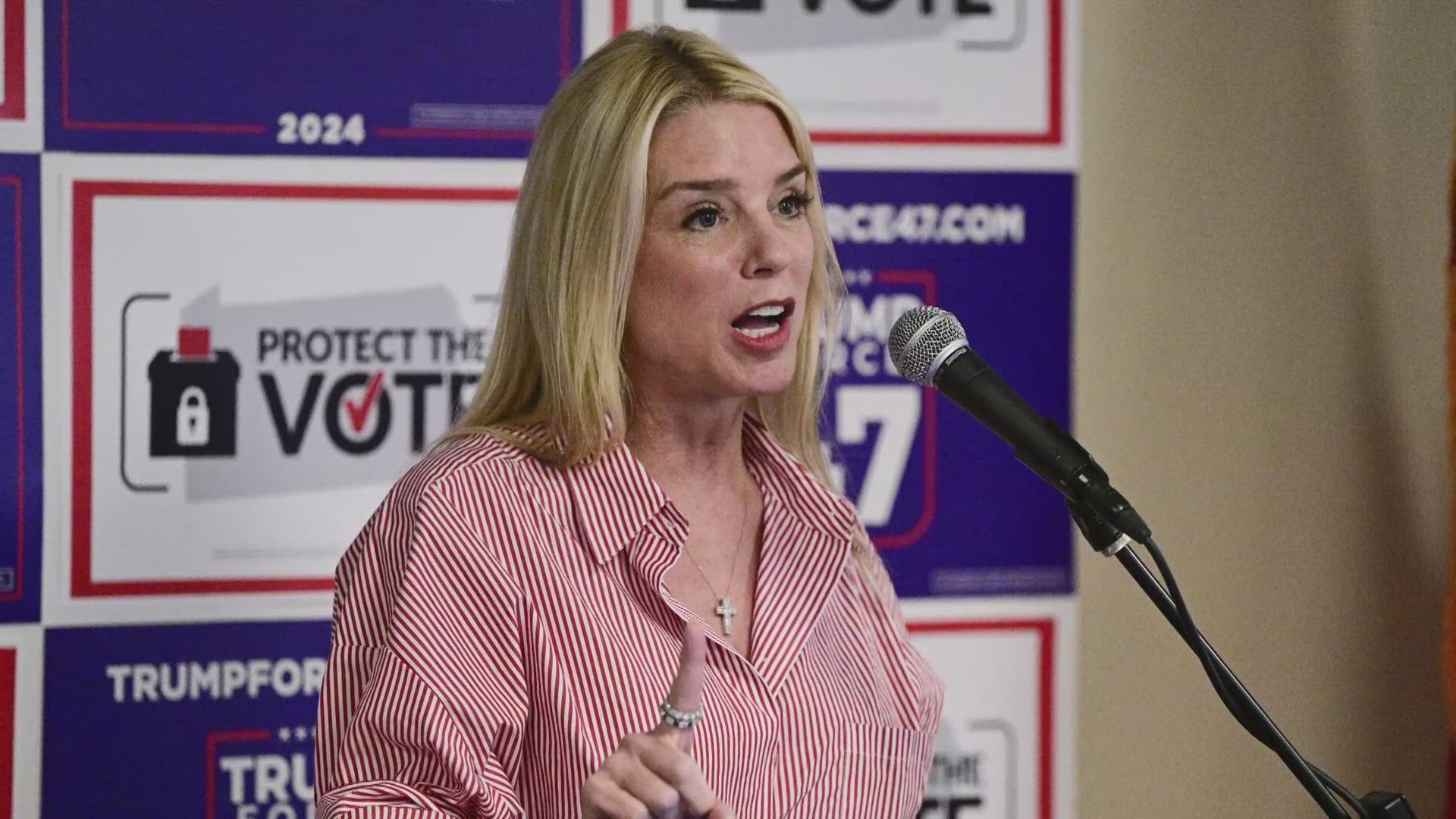WFAA invited each of the Democratic candidates for U.S. Senator from Texas to answer the following questions to help inform voters before Super Tuesday on March 3.
Occupation:
Community Advocate
How long have you lived in Texas?
I have lived in Texas for the past 10 years.
Why are you running for U.S. Senate?
I have been an activist and community advocate for most of my adult life. During that time, none of our elected representatives have acted on issues of healthcare, environment, systemic racism, systemic poverty, and ending the war economy. I want the policies that I represent to positively impact the people of Texas and the United States. I am committing at least six (6) years of my life to serving in Congress to accomplish these goals.
Prior political experience or civic leadership involvement?
I am a co-founder and member of the Texas Poor People's Campaign, the Houston Climate Action Plan Committee, and the Environmental Justice Coalition. I am the current President of Caring For Pasadena Communities.
There are a lot of candidates in this race, why should voters choose you over someone else?
I am committed to serving the interests of all of Texas. I am the only candidate whose campaign is funded solely by grassroots donations and the only candidate who has not accepted donations from billionaires, industry bundlers, or Wall Street PACs. I am the only candidate in this race to have taken the No Fossil Fuel Money Pledge twice, once in 2018 and again in 2020.
In your view, what are the three biggest challenges facing Texas? Specifically, how do you plan to address them?
Environment: Fossil fuel dependency is burning up our Earth and our future. While most other developed nations have been transitioning to renewable energy, our government protects the market power of oil producers, many of which are not US companies. These companies already have cut employment and benefits, and there is no reason to believe they will protect our jobs.
I support a Green New Deal program that will provide training and education to all current and future energy workers, to help transition to green energy technologies. The program will provide funding for community- and regionally-owned energy production and grids, independent of privately-run monopolies, to ensure that communities control their energy and the prices they pay. The program will include the development of local broadband systems that will unite and connect everyone from urban to rural communities, to increase access to information, education, and opportunities. A Green New Deal means an end to environmental racism and a healthier environment for everyone. It also will lower healthcare costs attributable to environmental health hazards.
Healthcare: I support Medicare For All, as it is defined in US Senate Bill S.1129. This is the fairest and easiest way to provide full healthcare benefits for everyone while saving taxpayers and employers millions of dollars each year. It will increase disposable income, reduce poverty, and improve health outcomes across the nation, benefiting individuals and the economy. I will re-introduce the bill, in its current form, if Sen. Sanders has not done so in 2020. The bill provides everyone with the same coverage, regardless of gender, socioeconomic status, race, religion and other demographic status.
Ending the War Economy: Defense spending should be limited to what is necessary to our domestic security. It should not include rewarding the profiteering interests of the fossil fuel industry, defense contractors, and banking. Defense spending incentivizes Congress to keep youth in poverty, as a means of recruiting them to military service, rather than pursuing an education or training for employment. This perpetuates the cycle of poverty.
I will hold the Pentagon responsible to pass audits and to curb wasteful spending, as a condition to Congress approving additional funding. Additionally, our defense budgets are used to destabilize and intervene in foreign governments, which endangers the people of those nations and increases the number of refugees seeking asylum here and elsewhere. We must, instead, increase diplomatic efforts toward peace, invest in equitable education and military veteran programs.
Washington is broken. Lawmakers retreat to their parties, follow orders from party bosses and rarely work across the aisle for the common good. How would you change that?
Washington is broken because too many elected officials break their campaign promises to voters and instead make bi-partisan deals drafted by Wall Street lobbyists. Voters get nothing while big money donors benefit from bad laws.
My platform is designed to directly benefit voters, rather than giving away taxpayer money to the industry. To execute my platform, I will get my marching orders from my constituents. I will be their voice, as I work with my colleagues in the Senate to pass legislation that creates a better future for Texas and the rest of the United States.
If elected, how would you address the mass shootings in Texas and across the country?
We must have the courage to end the gun violence epidemic in this country. We must prioritize the safety of the public, not the money from NRA lobbyists.
Congress has authority under the Commerce Clause to regulate gun sales and manufacturing. I will introduce or support legislation which will require mandatory universal background checks, close gun show loopholes, outlaw the sale of assault weapons, end the manufacturing of ammunition for assault weapons, and protect the rights of gun owners while offering voluntary buy-backs of weapons.
My opponent, John Cornyn, receives significant donations from the NRA and the weapons lobby. The NRA once supported reasonable background checks and gun registration. Today, weapons manufacturers fund the NRA, and it no longer is a trustworthy advocate of Second Amendment rights.
What federal cuts would you support to help achieve a balanced budget?
Defense spending should be limited to what is necessary for our domestic security. It should not include rewarding the profiteering interests of the fossil fuel industry, defense contractors, and banking. Defense spending incentivizes Congress to keep youth in poverty, as a means of recruiting them to military service, rather than pursuing an education or training for employment. This perpetuates the cycle of poverty.
I will hold the Pentagon responsible to pass audits and to curb wasteful spending, as a condition to Congress approving additional funding. Additionally, our defense budgets are used to destabilize and intervene in foreign governments, which endangers the people of those nations and increases the number of refugees seeking asylum here and elsewhere. We must, instead, increase diplomatic efforts toward peace, invest in equitable education and military veteran programs.
Do you support or oppose open borders?
The concept of "open borders" suggests an absence of immigration laws. I support immigration laws which provide a fair and equal pathway to citizenship for all who want to become citizens of the United States. Our nation also must honor and abide by international and domestic laws that govern the treatment of refugees seeking asylum.
Do you support universal healthcare? If so, how would you pay for it?
I support Medicare For All, as outlined in Senate bill S.1129. It will reduce the cost of healthcare for everyone while providing prescription, vision, dental, hearing, mental health, and long-term care coverage.
We currently pay more for our fractured healthcare system than Medicare For All will cost, as established in a January 15, 2020 study by PLOS Medicine, as well as in numerous economic studies by Saez, Zucman, Pollin, and others.
If elected, what’s your priority on Day One in office?
My first priority is to rebuild the crumbling infrastructure of our otherwise great nation.
On what issue or issues could you work with the White House? Or U.S. Sen. Mitch McConnell?
I will work with the White House, with Mr. McConnell, and with any other colleague in Congress on matters of healthcare, education, immigration, ending systemic poverty, ending systemic racism, and protecting our planet from the climate crisis, without compromising the interests of my constituents.
On what issue, would you not compromise?
I will not compromise the rights of our military veterans.
Have you ever been arrested, charged with a crime or faced criminal proceedings in a court? If yes, please explain:
No
Have you ever been involved in any lawsuits or declared bankruptcy? If yes, please explain:
No
Favorite restaurant – or night out in Texas?
Last Concert Cafe in Houston, Texas.
Do you ever ride public transportation such as city buses or light rail?
Yes
Tell us something about yourself – unrelated to politics or this race – that voters probably don’t know.
I am the daughter of immigrants. The sacrifices my parents and grandparents made are part of what fueled my decision to run for U.S. Senate. I grew up in a migrant working family, and I understand the struggle of people who are burdened by crushing debt, job insecurity, environmental racism, and lack of healthcare coverage.




